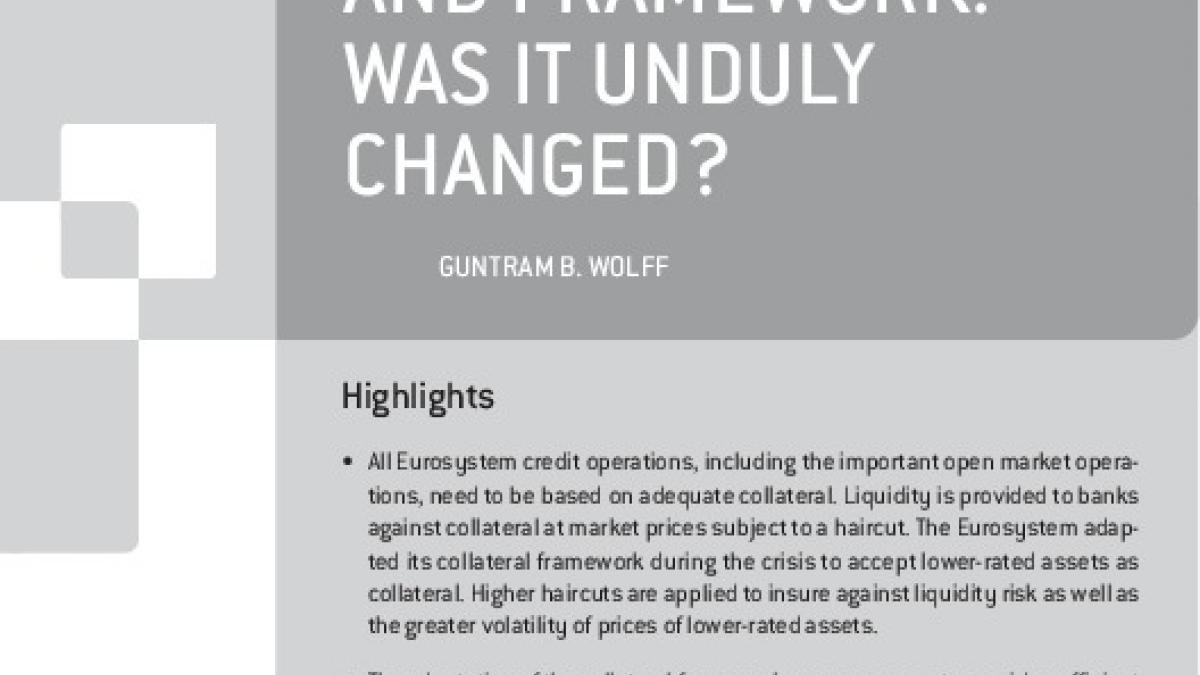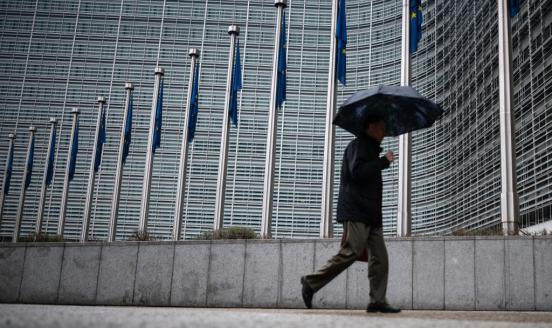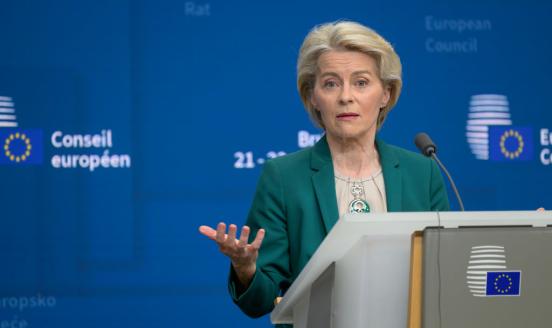Eurosystem collateral policy and framework: Was it unduly changed?
This Policy Contribution was prepared for the European Parliament Committee on Economic and Monetary Affairs. It argues that the changes in the collat

This Policy Contribution was prepared for the European Parliament Committee on Economic and Monetary Affairs.
All Eurosystem credit operations, including the important open market operations, need to be based on adequate collateral. Liquidity is provided to banks against collateral at market prices subject to a haircut. The Eurosystem adapted its collateral framework during the crisis to accept lower-rated assets as collateral. Higher haircuts are applied to insure against liquidity risk as well as the greater volatility of prices of lower-rated assets.
The adaptation of the collateral framework was necessary to provide sufficient liquidity to banks in the euro area periphery in particular. In crisis countries, special emergency liquidity assistance was provided. More than 80 percent of the European Central Bank’s liquidity (Main Refinancing Operations and Long Term Refinancing Operations) is provided to banks in five countries (Greece, Ireland, Italy, Portugal and Spain). The changes in the collateral framework were necessary for the ECB to fulfil its treaty-based mandate of providing liquidity to solvent banks and safeguarding financial stability. The ECB did not take on board excessive risks.
Alvaro Leandro provided excellent research assistance.



